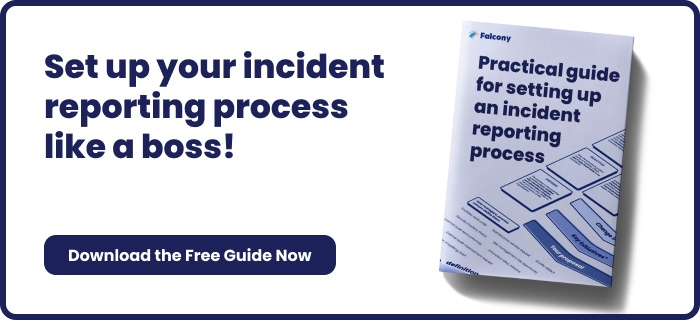What is Lesson Learned and how does it relate to continuous improvement?
Continuous improvement is a fundamental concept in both personal and professional development. It involves an ongoing commitment to enhancing processes, practices, and outcomes.
One crucial component of this improvement journey is the concept of "Lessons Learned." In this blog post, we'll delve into what Lessons Learned means and explore its essential role in the pursuit of continuous improvement.
What are Lessons Learned?
Lessons Learned, often abbreviated as LL or L2, refer to the knowledge and insights gained through experiences, both positive and negative. It's the process of reflecting on past actions, projects, or situations to identify what worked well and what didn't. This reflective process is crucial because it allows individuals and organizations to gather valuable insights and wisdom from their experiences.
Lessons Learned can come from various sources, such as:
- Projects: After completing a project, teams review what went right and what went wrong to extract valuable insights.
- Incidents and Failures: Analyzing accidents, errors, or failures provides an opportunity to understand the root causes and prevent them from happening again.
- Successes: Even when things go well, there are lessons to be learned about what contributed to success and how to replicate it.
How Does Lessons Learned Relate to Continuous Improvement?
-
Informing Future Decisions: The primary purpose of Lessons Learned is to inform future decisions. By analyzing past experiences, individuals and organizations can make more informed choices. For example, if a project failed due to inadequate planning, the Lessons Learned can guide future project planning processes, leading to better outcomes.
-
Preventing Repetition of Mistakes: One of the key benefits of Lessons Learned is its ability to prevent the repetition of mistakes. By identifying the root causes of failures or errors, organizations can implement corrective actions to ensure similar issues don't occur again.
-
Promoting Innovation: Continuous improvement involves not only fixing problems but also finding innovative ways to do things better. Lessons Learned can inspire innovation by highlighting areas for improvement and encouraging creative solutions.
-
Fostering a Learning Culture: Embracing the Lessons Learned process fosters a culture of learning and growth within an organization. When employees feel that their experiences and insights are valued, they are more likely to actively seek improvements and share their knowledge.
-
Enhancing Efficiency and Effectiveness: Continuous improvement aims to enhance efficiency and effectiveness in various aspects of work. Lessons Learned contribute directly to this goal by identifying areas where processes can be streamlined, resources can be optimized, and performance can be improved.
-
Adapting to Change: In today's rapidly changing world, adaptability is key. Lessons Learned help individuals and organizations adapt to changing circumstances by drawing from past experiences to make agile decisions.
Conclusion
Lessons Learned are a critical component of the continuous improvement process. They provide a platform for reflection, growth, and development by extracting knowledge from past experiences. Whether you're an individual striving for personal growth or an organization committed to excellence, integrating Lessons Learned into your practices can lead to more informed decision-making, better outcomes, and a culture of continuous improvement. Embrace the power of Lessons Learned, and you'll be on your way to achieving ongoing success and growth.
If you're looking for a platform to collect more data to monitor your organisation's incident reporting practices, Falcony | Observe have you covered. You can find more information on our website or test out our 30-day free trial:
We are building the world's first operational involvement platform. Our mission is to make the process of finding, sharing, fixing and learning from issues and observations as easy as thinking about them and as rewarding as being remembered for them.
By doing this, we are making work more meaningful for all parties involved.
More information at falcony.io.

Related posts
Why are Leading Indicators Crucial in Safety Management?
Key performance indicators can be divided into several categories, but in this blog post, we’re...
Difference between Safety KPIS: LTAF, LTA, TRIF and MTI
When To Use Lagging And Leading Indicators In Safety
Key Performance Indicators (KPIs) are metrics or insights that help you measure the progress of...





